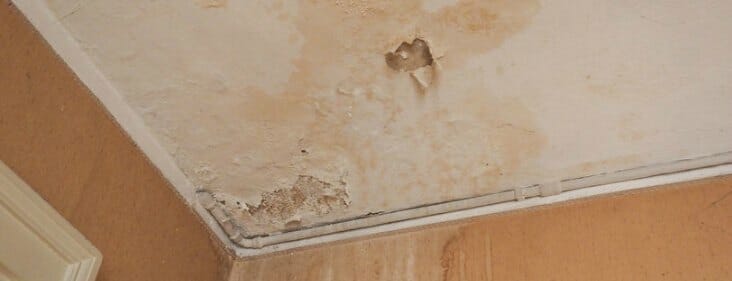The House's Common Typical Leak Factors: Examination
The House's Common Typical Leak Factors: Examination
Blog Article
What're your opinions concerning Common Water Leaks In House?

Leaks not just trigger waste of water yet can also cause unneeded damage to your home as well as promote undesirable natural growth. Water leakages may go undetected given that most of the pipework in our home is concealed. By comprehending as well as looking for daily scenarios that create leaks, you can protect your residence from future leaks as well as unnecessary damages. Today, we will look at six leakage creates that might be causing your pipelines to leak.
Instantaneous temperature changes.
Extreme temperature modifications in our pipelines can create them to expand and get all of a sudden. This growth and also contraction may create splits in the pipes, specifically if the temperature are listed below freezing.
Corroded water supply
This may be the reason of discoloration or bending on your water pipes. If our plumbing system is old, think about replacing the pipelines because they are at a greater threat of rust than the newer designs.
Faulty Pipe Joints
The point at which your pipes attach is frequently the weakest web link in the waterline. Pipeline joints can deteriorate over time, resulting in water leakages. The majority of pipeline joints are not quickly visible. If you have noisy pipes that make ticking or banging noises, particularly when the hot water is switched on, your pipeline joints are possibly under a great deal of stress. It is a good idea to have your plumber evaluate your system yearly.
Elbowing in origins
Most water leakages start outside the house instead than inside it. You could see wet spots or sinkholes in your yard, and also that may imply that tree roots are getting into water lines creating water to seep out.
Poor Water Connectors
At times, a leakage can be created by loosened pipes as well as pipes that provide your appliances. In instance of a water connections leakage, you might notice water running straight from the supply line or puddles around your devices.
Blocked Drains
Obstructed drains could be irritating and inconveniencing, yet they can in some cases wind up causing an overflow causing rupture pipes. Maintain removing any type of products that may go down your drains pipes that might obstruct them to stay clear of such hassles.
All the above are sources of leakages but not all water leaks arise from plumbing leaks; some leakages could originate from roof covering leaks. All leakages ought to be repaired quickly to stay clear of water damages.
Leakages not just cause waste of water however can also trigger unnecessary damage to your home and also promote undesirable natural growth. By understanding and looking for everyday scenarios that create leaks, you can secure your home from future leakages and unnecessary damages. Today, we will look at 6 leakage causes that might be creating your pipes to drip.
At times, a leak can be triggered by loosened pipes and also pipelines that provide your home appliances. In situation of a water links leak, you might notice water running straight from the supply line or pools around your devices.
How To Check For Water Leak In Your Home
How To Check for Leaks
The average household's leaks can account for nearly 10,000 gallons of water wasted every year and ten percent of homes have leaks that waste 90 gallons or more per day. Common types of leaks found in the home are worn toilet flappers, dripping faucets, and other leaking valves. These types of leaks are often easy to fix, requiring only a few tools and hardware that can pay for themselves in water savings. Fixing easily corrected household water leaks can save homeowners about 10 percent on their water bills.
To check for leaks in your home, you first need to determine whether you're wasting water and then identify the source of the leak. Here are some tips for finding leaks:
Take a look at your water usage during a colder month, such as January or February. If a family of four exceeds 12,000 gallons per month, there are serious leaks.
Check your water meter before and after a two-hour period when no water is being used. If the meter changes at all, you probably have a leak.
Identify toilet leaks by placing a drop of food coloring in the toilet tank. If any color shows up in the bowl after 10 minutes, you have a leak. (Be sure to flush immediately after the experiment to avoid staining the tank.)
Examine faucet gaskets and pipe fittings for any water on the outside of the pipe to check for surface leaks.
Undetected water leaks can happen without the home or business owner even realizing. If you suspect a water leak, but not able to find the source. It is time to contact a professional water leak detection service, The Leak Doctor.
How To Find a Water Leak In Your Home
https://www.leakdoctor.com/blog/How-To-Check-For-Water-Leak-In-Your-Home_AE197.html

Hopefully you enjoyed our post about How to Find Water Leaks. Thanks a ton for taking time to read through our blog. Are you aware of somebody who is serious about the niche? Please feel free to promote it. We truly appreciate reading our article about Top Causes of Home Water Leaks.
Toilet overflow? Call us! Report this page